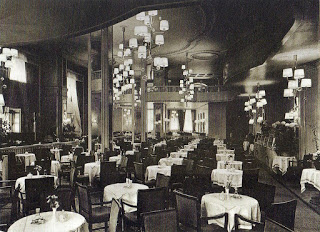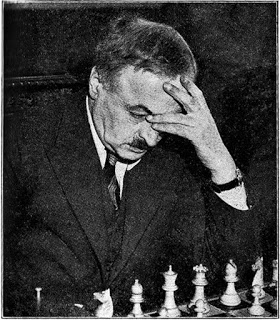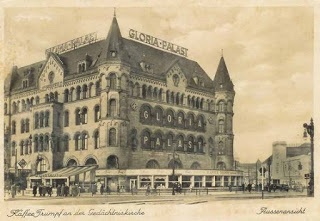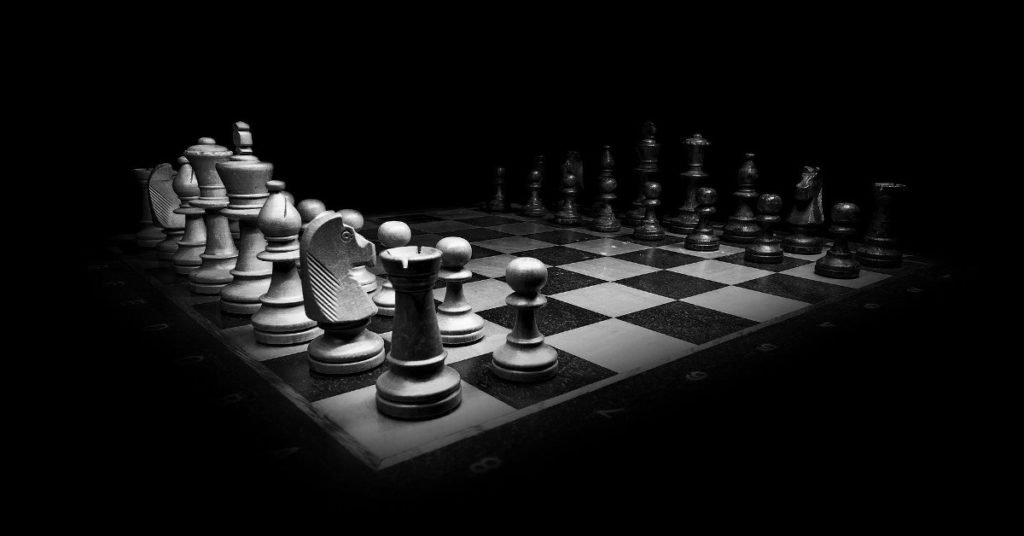
It always amazes me, the tangential relationships I discover that touch on the Josef Jakobs story.
On 13 June 1941, during an interrogation with Camp 020 officer, Lt. George F. Sampson, Josef mentioned that:
Dr. Paul List, a Russian Jew who immigrated to Germany, can confirm that I am anti-Nazi. List is a professional chess player and owned a club in the Café Berlin in the Kurfürstendamm in 1931 and then later a club in the Café Trumpf. (The National Archives, KV 2/25, no. 94b)
A few months ago, I did a bit more digging on the mysterious Dr. Paul List, just to see if the guy existed and if there was any truth to Josef’s story. Here’s what I found…
Dr. Paul List

(republished by the ChessGames.com site).
Paul (Pavel) M. (Odes) List was born 6 December 1887 to Jewish parents in Memel (Klaipeda) Lithuania. Paul lived in Lithuania and apparently studied at the Wilna University until 1908, when he moved to Odessa, Ukraine to study at Odessa University.
Paul was already a respected chess player and contributed to the revival of chess in Ukraine. In 1908, he took first place in the Odessa championship, qualifying for the All-Russian Amateurs tournament.
His real family name was Odes but because letters address to Odes in Odessa was confusing, he changed his family name to List.
From 1911 to 1918, List played in several Russian tournaments. By 1920, the Soviet Red Army had invaded Ukraine and taken possession of Odessa. In the face of political unrest, many Ukrainians fled abroad. Given List’s birth in Memel, where German was one of the two main languages, List decided to flee to Germany.
![Café Wien, Kurfüstendamm, Berlin (Phot. E. Leitner, Berlin-Charlottenburg [Public domain] via Wikimedia Commons)](https://josefjakobs.info/wp-content/uploads/2021/02/Conditorei_cafe_wien_berlin_kurfuerstendamm.jpg)
By 1926, List had settled in Berlin and with the help of friends, built up a chess centre which soon became famous. He gave lectures, played in chess tournaments and published a weekly chess column.
In 1929, List was working as a chess room manager in Café Wien at 26 Kurfürstendamm, owned owned by Hungarian-born Jewish businessman Karl Kutschera. Albert Einstein apparently spent time in the chess room at the Café Wien.
By 1932, List had moved a few buildings over and was the director of the chess room in Café Trumpf at 10 Kurfürstendamm. At the opening of the chess room on 14 November 1932, List and another player (Saemisch) played 38 simultaneous games.
The rise of Nazism soon put a damper on List’s activities in Germany. In early August 1936, List visited Kaunas (Lithuania) and helped prepare the Lithuanian chess team for the unofficial Olympiad in Munich. From Kaunas, List travelled to England and played in the 1936 Nottingham Chess Congress).

In October 1937, List restored his Lithuanian citizenship and received a Lithuanian passport. By the end of the year, he had settled in London, England, although he kept his Lithuanian citizenship.In 1939, List was living in Belsize Square in Hampstead with his wife Stephanie. His family name was noted as: List-Odess.
List became an art dealer in England, but chess remained one of his foremost activities. List played in many chess tournaments over the coming years but didn’t place first often, although he was a great defensive player.
On 22-25 May 1953, the 65 year-old List, who was also ill, finished first in the British Lightning Chess Championship (10 seconds per move). He was, however, not awarded the champion title, since he was not a naturalized Briton.
List died on 9 September 1954, at the age of 66 in London.
The German Spy and the Jewish Chess Master
It would appear that Josef was telling the truth when he told Lt. Sampson about Dr. Paul List and the Café Trumpf. There is some discrepancy as Josef mentions that List ran a chess room at the Café Berlin while chess history sources mention a Café Wien. This could simply be a faulty memory on Josef’s part. Or perhaps, there was a Café Berlin at which List also spent time.
There is no evidence in the MI5 files that the interrogation officers visited Paul List and questioned him about Josef Jakobs. They did question Frau Lily Knips, a German-Jewish refugee in London, whom Josef had known in Berlin. They also questioned Frau Clara Gronau, another German-Jewish refugee from Berlin whom Knips suggested might know Josef. It’s not clear why they never questioned the Russian-Jewish chessmaster about Josef Jakobs.
Sources
Paul List Biography – wonderfully detailed with many references
Photograph of Paul List in 1946
Bio Bits and Photographs of Paul List
British 1939 National Registration
Memorial Plaque site for Cafe Wien – has a pdf that gives a bit of Karl Kutschera’s history (German)
Final Sale: The End of Jewish-owned Business in Nazi Berlin – has a couple of pages on Kutschera
